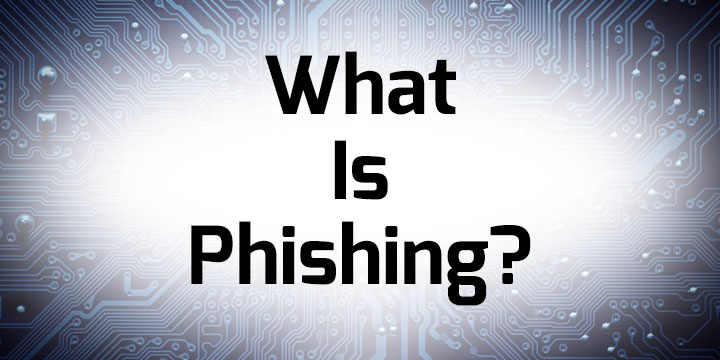Phishing is the name given to a method used to obtain sensitive information, such as passwords, credit card details and so on.
This is often done by the criminal sending a fraudulent email to the user, or getting the user to open a malicious attachment. The sophistication of these fake emails can vary greatly, from the fairly obvious to almost perfect replications of a genuine email. However, you can look out for the following signs that you have received a phishing email.
Does the email look right?
If something feels a bit off then trust your instincts. Although there are some very good copies and clones being used in phishing emails, the majority are fairly easy to spot, with low quality images or bad styling used in the content of the email. There may be poor grammar or spelling, or the ‘from’ email address may not match who the email claims to be from (123@hotmail.com claiming to be from paypal.com, for example).
Does the email contain generic greetings or salutations?
You should be wary of emails that start with “Dear Customer” or even “Hello Friend”. Genuine emails from your bank for example are more likely to have a customised greeting, such as Dear *YOUR NAME*.
Is the email requesting sensitive data?
Hackers often try to trick you in to submitting information such as your logins. Your bank would never ask for you to confirm personal information by email, so be very wary of any email that requests this. Also, beware of emails that request you to verify your account. If in doubt, don’t reply to the email and contact your bank.
Does the email contain specific information about you?
Criminals may collect information that they have found online to try and convince you that the email is genuine. This information can be obtained from Facebook, Twitter and other social media platforms. You should review the security settings of your social media accounts, and check who can view your details.
Does the email contain scare tactics, threats or a sense of urgency?
Hackers may try telling you that your account has already been compromised, or your account will be closed if you don’t send them the requested information. If you are in doubt, then contact your bank or service provider directly, don’t reply to the email.
Does the email contain spelling mistakes and poor grammar?
This is a good indicator that the email is fraudulent.
Beware of cybersquatting.
Cybersquatting uses lookalike urls that are used to try and trick the user into entering information. Sometimes these are fairly easy to spot (g00gle.com for example), but criminals now use letters from non-European languages that can be hard to spot.
If you are concerned that your details with Mobo Host may have been compromised or you have any other questions, then please get in touch, our technical support team will be happy to advise you.


Leave a Reply